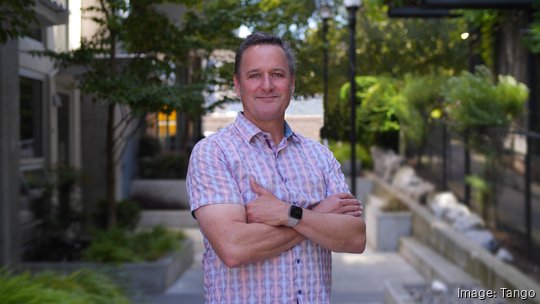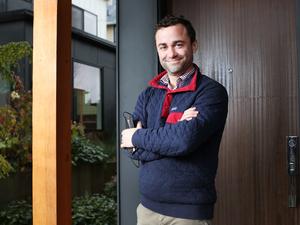
Seattle-based payments and gift card company Tango Card Inc. is leaning into its growth.
Founder and CEO David Leeds said the company has just under 300 employees but plans to add about 50 this year. About half of the company's employees are based in the Seattle area.
"We're still growing a lot. This will be our fastest growth year ever," Leeds said. "We continue to invest big time in the business."
Tango has office space in West Seattle at Jefferson Square, where it occupies the fourth floor. Leeds said the space has proven valuable for company events, but Tango is looking into subleasing some of the space. He added that the company previously had offices in Boise, Idaho, and Omaha, Nebraska, but has since closed those.
Leeds founded Tango in 2009. The company offers digital gift cards for incentive programs. For example, a researchers could use Tango to offer digital gift cards as a way to incentivize participation in a study, or an employer could reward employees using cards from Tango. The company offers gift cards to brands like Nike, REI and Nordstrom. Tango raised $35 million in 2018, and its backers include FTV Capital, Innovation Endeavors, Floodgate and Fyrfly.
Tango also offers prepaid cards and allows users to donate to charities. Earlier this month, Tango announced users have donated more than $10 million to nonprofits using its platform. Leeds said employee recognition programs provide an easy way for employees to donate a portion of their rewards to a nonprofit of their choice.
The charitable donation option has been a part of Tango's offerings since the company started. Rather than connect to some existing network of nonprofits, Tango has been deliberate about choosing and adding nonprofits that cover major areas of interest. Users can donate to the American Cancer Society, American Red Cross, Clean Water Fund, Special Olympics, Habitat for Humanity and others.
Tango makes money on the margins between what it buys the gift cards for and what it sells them for to customers. It charges nonprofits an administration fee of 1% to 8% for donations. Leeds said the cost is small compared with what nonprofits spend to raise money.
Leeds said when he started the company, a big problem was what is known as "breakage," or when a consumer has a few dollars left on a gift card and doesn't go through the hassle of spending that money. Allowing consumers to donate those lost dollars can make a major impact, he added.
"That whole idea of allowing people to donate some or all of the value of the reward they had earned was part of our thesis from day one," Leeds said. "We didn't know if it would work or take off. Fortunately, it has."








